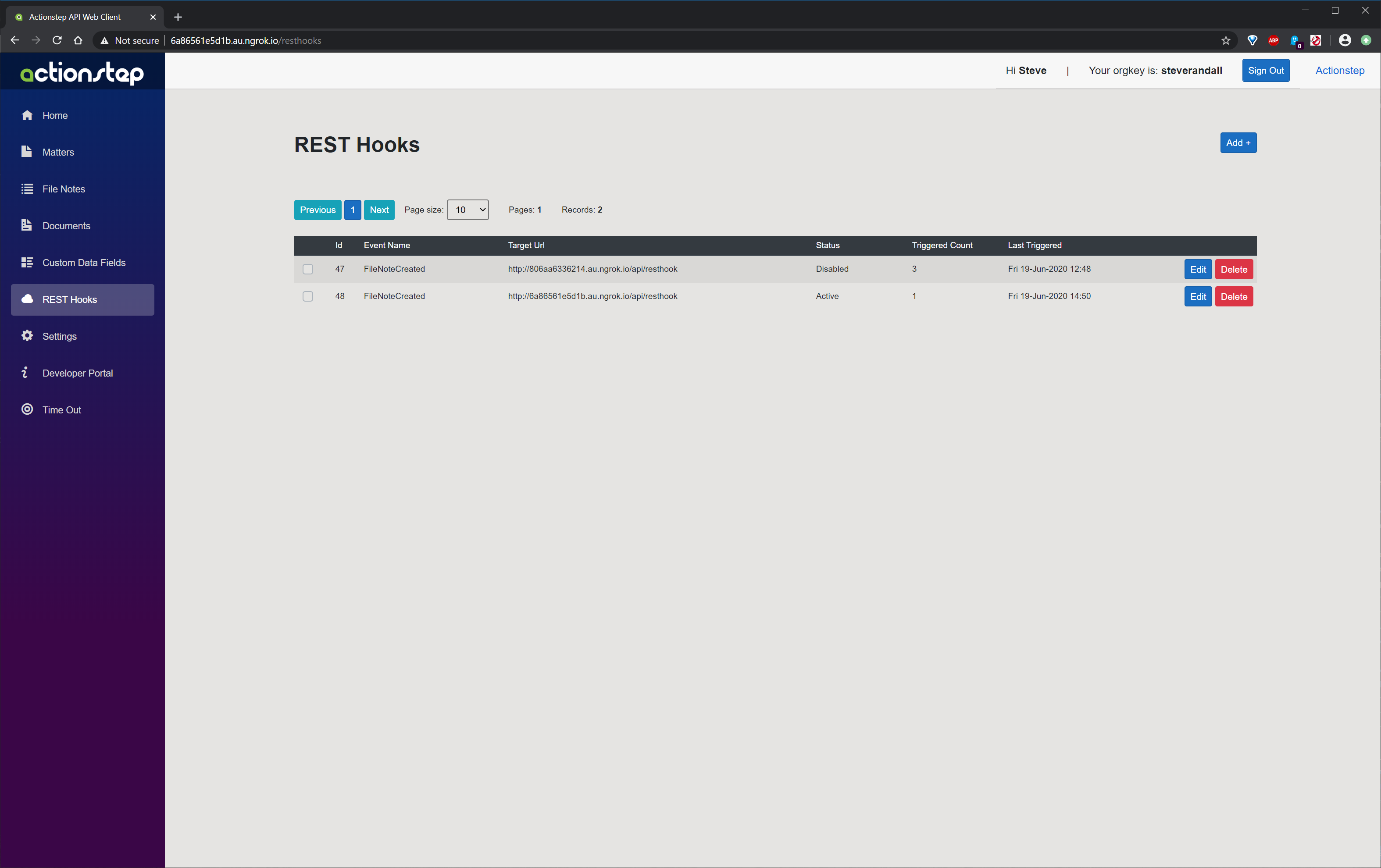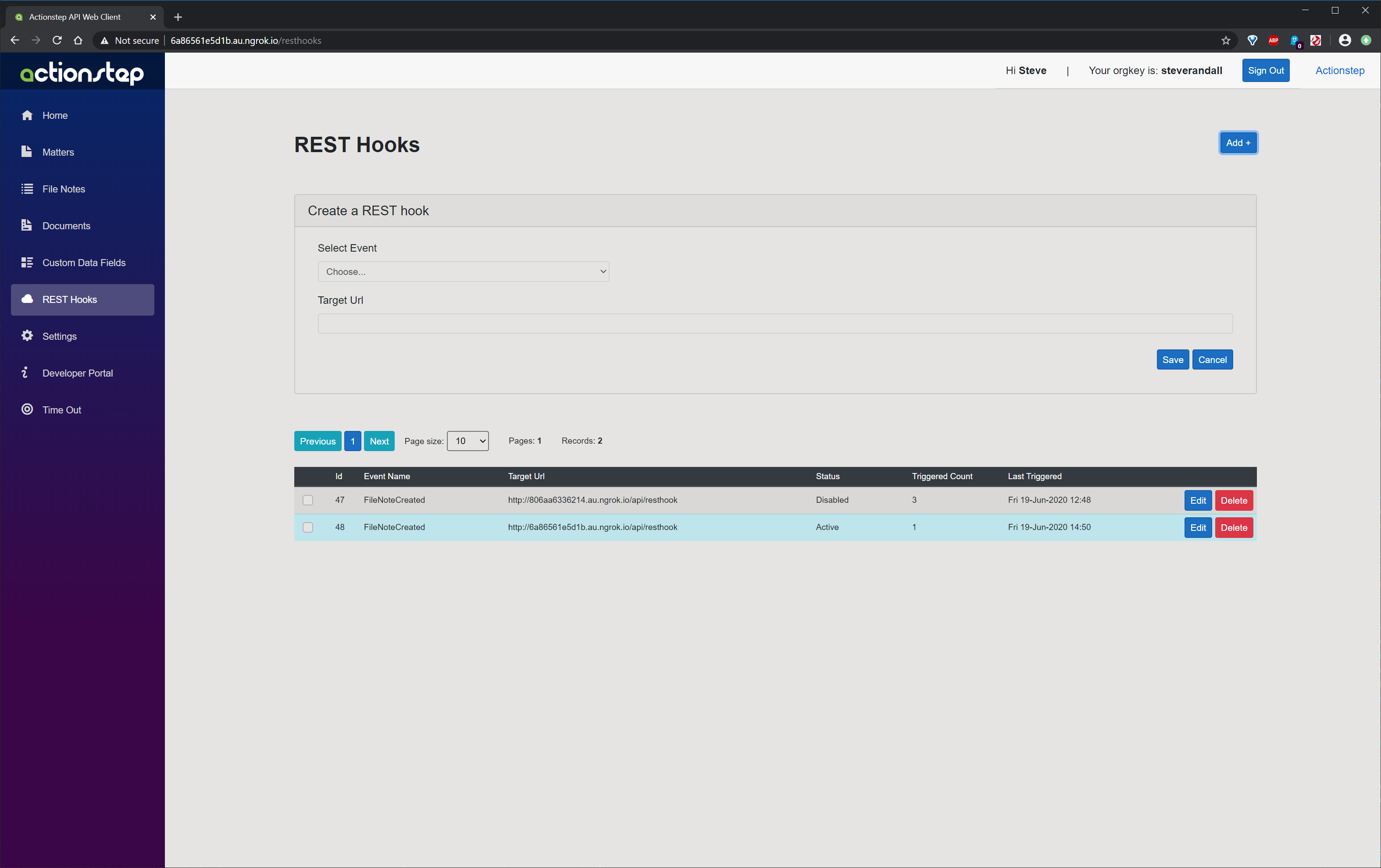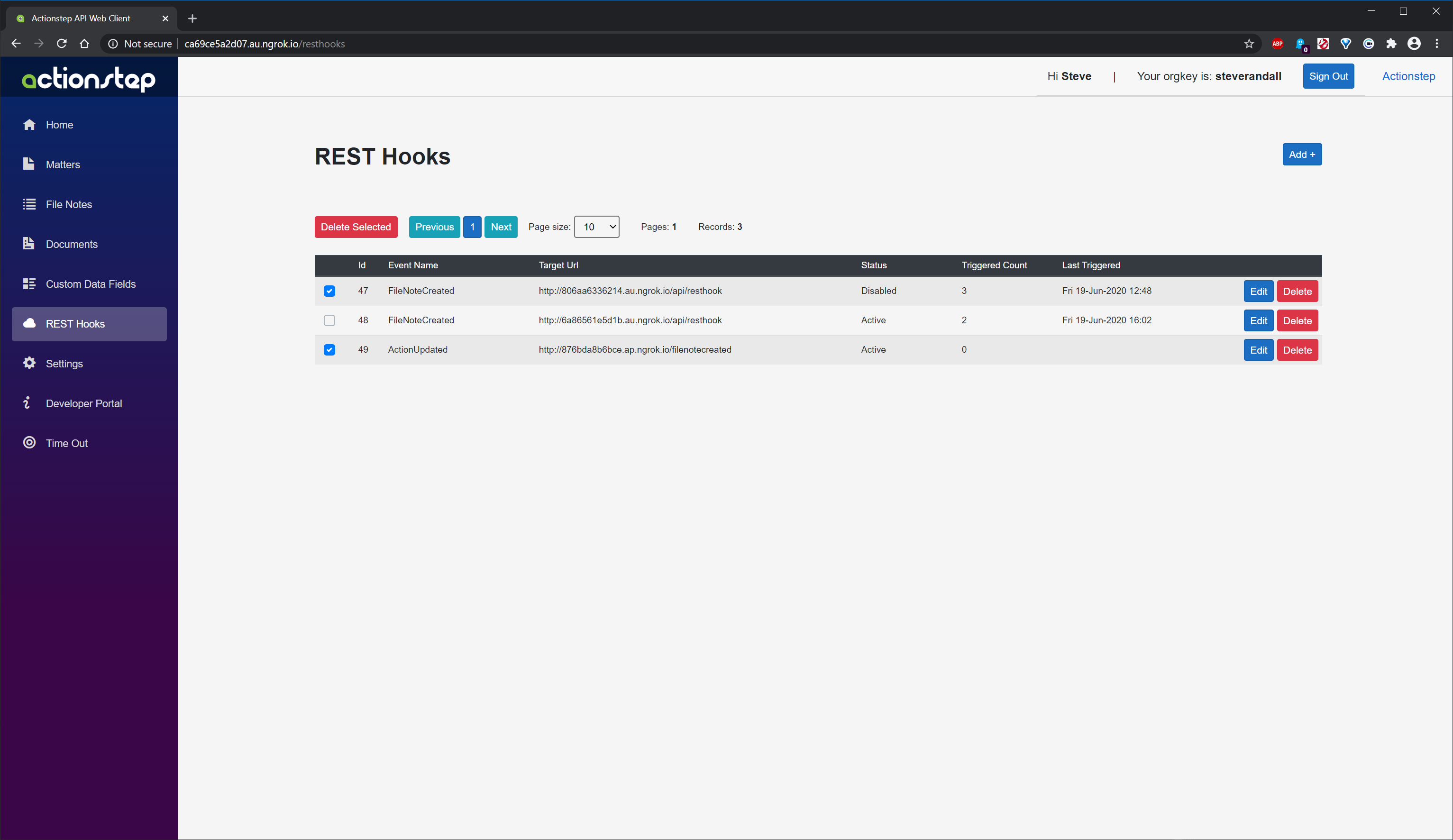 Developer Portal
Developer PortalUsing the API
API ScopesAPI CredentialsAPI LimitsAuthentication and AuthorizationAPI RequestsAPI ResponsesCustom Data FieldsUploading and Downloading DocumentsAPI EndpointsReporting EndpointsREST Hooks
REST Hooks and Event NotificationsREST Hooks
Introduction
The REST Hooks screen demonstrates how to register callbacks triggered on specific Actionstep events that you can programmatically respond to. The screen shows how to list, create, and update REST hooks.
API Functionality Demonstrated
- Retrieving registered REST hooks individually and by paging.
- Creating (registering) a REST hook.
- Modifying an existing REST hook.
- Deleting single and multiple REST hooks.
Overview
Registering a REST hook allows you to take advantage of when certain types of events occur in Actionstep. Actionstep will call any registered REST hooks and expects to receive an http status code of 200 in response.
NB: If Actionstep receives any other response code it will automatically disable the REST hook.
Click here to view the full list of currently supported REST Hooks.

Creating and Modifying a REST Hooks
To create (register) a new REST hook click on the Add+ button. Select the event for which you wish to receive notification and provide the target url for Actionstep to call. In the example shown Ngrok is being used as a proxy to route callbacks into the localhost development environment for testing purposes.
If during testing any of your callback methods fail and do not respond with an http 200 status code the rest hook will be disabled by Actionstep. Under this scenario you will need to register a new REST hook for the target event.

Deleting REST Hooks
You can delete REST hooks either singularly or use the checkboxes displayed in the first column to enable the Delete Selected button.
